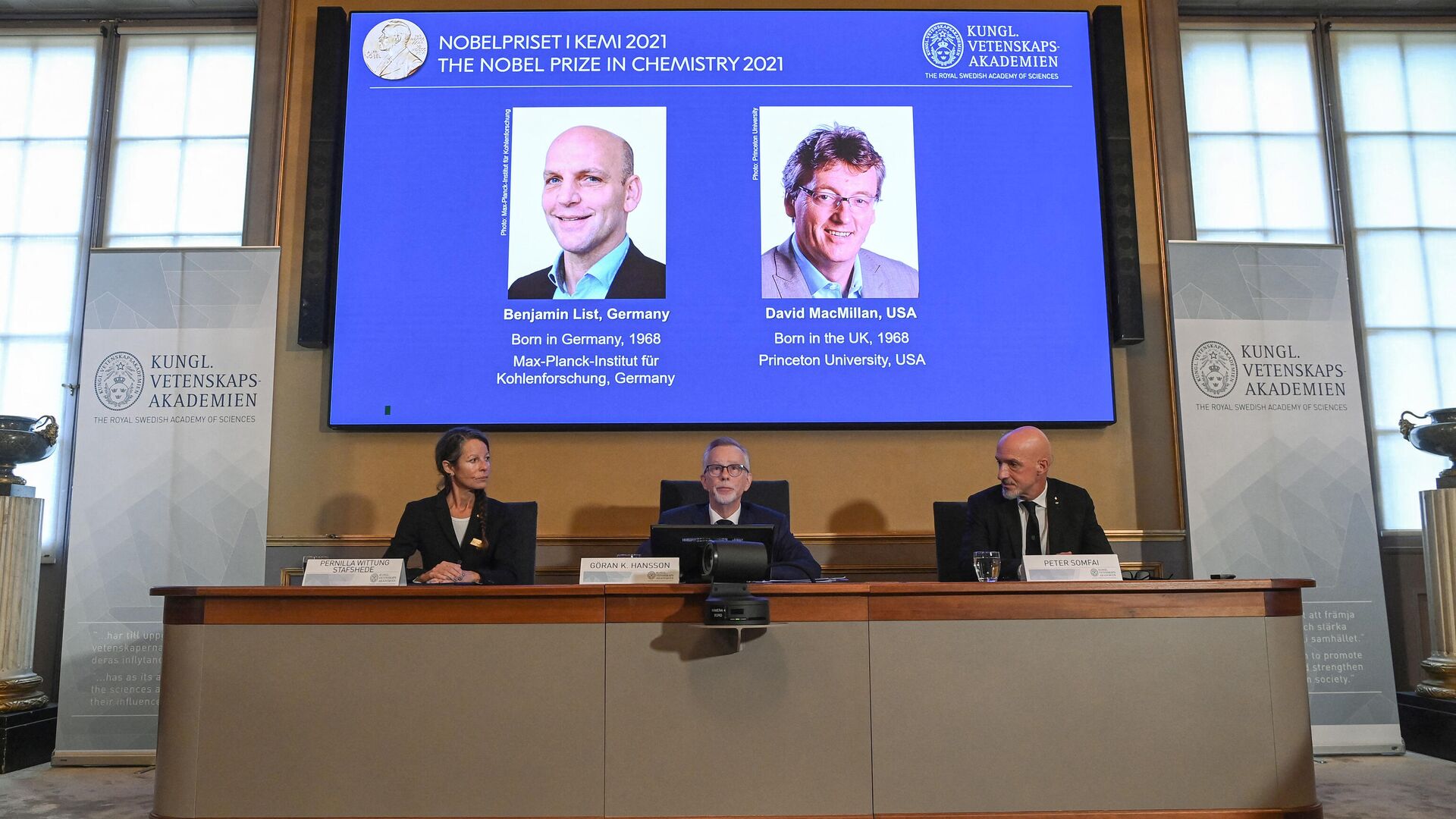Nobel Prize in Chemistry Awarded to List and Macmillan for Development of Asymmetric Organocatalysis
09:51 GMT 06.10.2021 (Updated: 10:18 GMT 06.10.2021)

© AFP 2023 / JONATHAN NACKSTRAND
Subscribe
The Nobel Committee on Сhemistry of the Royal Swedish Academy of Sciences has announced the name of the winner of the 2021 Nobel Prize in сhemistry.
The 2021 Nobel Prize in Chemistry is awarded to Benjamin List from Germany's Max-Planck-Institut and David W.C. MacMillan from the US Princeton University "for the development of asymmetric organocatalysis," the Royal Swedish Academy of Sciences announced on Wednesday.
"Building molecules is a difficult art. Benjamin List and David MacMillan are awarded the Nobel Prize in Chemistry 2021 for their development of a precise new tool for molecular construction: organocatalysis ... Benjamin List and David MacMillan remain leaders in the field, and have shown that organic catalysts can be used to drive multitudes of chemical reactions. Using these reactions, researchers can now more efficiently construct anything from new pharmaceuticals to molecules that can capture light in solar cells. In this way, organocatalysts are bringing the greatest benefit to humankind," the Royal Swedish Academy of Sciences said in a statement.
BREAKING NEWS:
— The Nobel Prize (@NobelPrize) October 6, 2021
The 2021 #NobelPrize in Chemistry has been awarded to Benjamin List and David W.C. MacMillan “for the development of asymmetric organocatalysis.” pic.twitter.com/SzTJ2Chtge
Organocatalysis has developed at an astounding speed. Using these reactions, researchers can now more efficiently construct anything from new pharmaceuticals to molecules that can capture light in solar cells.#NobelPrize
— The Nobel Prize (@NobelPrize) October 6, 2021
The discovery – asymmetric organocatalysis – being awarded the 2021 #NobelPrize in Chemistry has taken molecular construction to an entirely new level. It has not only made chemistry greener, but also made it much easier to produce asymmetric molecules. pic.twitter.com/TsgSmgEmqb
— The Nobel Prize (@NobelPrize) October 6, 2021
In accordance with Alfred Nobel's will, the chemistry prize should go to the one "who makes the most important discovery or improvement" in this field. The award is presented by the Royal Swedish Academy of Sciences. Its working body is the Nobel Committee on Chemistry, which consists of five to six members, who are elected by the Academy for three years.
About 3 thousand scientists from all over the world have the right to nominate for the prize, including members of the Royal Swedish Academy of Sciences and Nobel Prize winners in chemistry and physics, who received special invitations from the committee.
In total, there are 185 scientists in the list of laureates (including Frederick Sanger, who was awarded twice). There are seven women among them.

